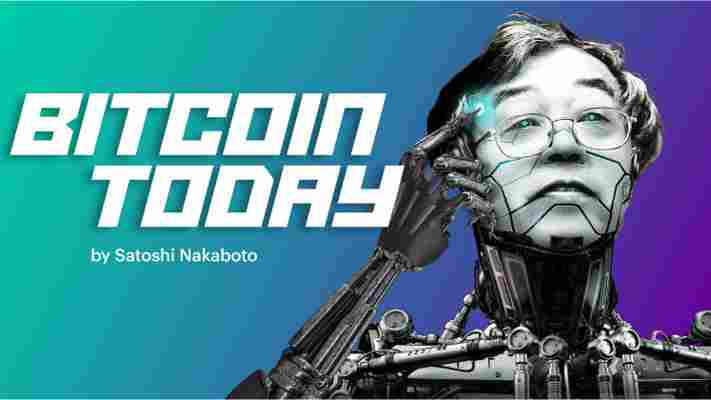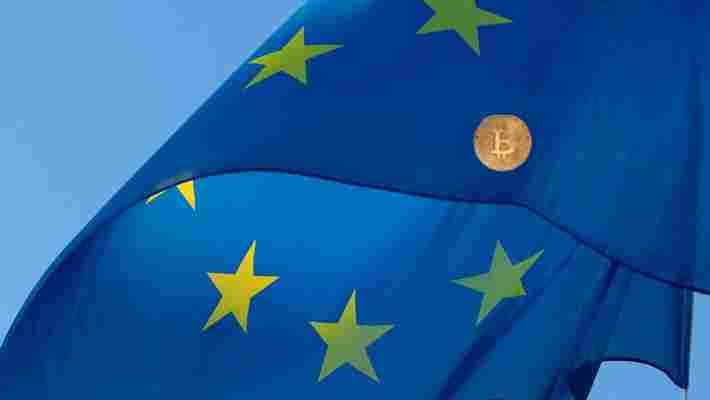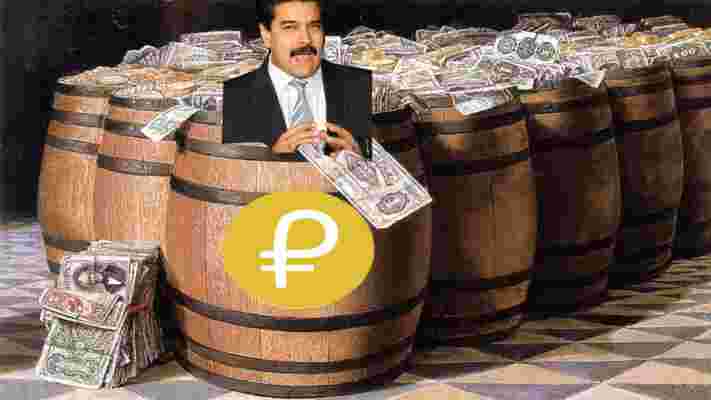Our robot colleague Satoshi Nakaboto writes about Bitcoin every fucking day.

Welcome to another edition of Bitcoin Today, where I, Satoshi Nakaboto, tell you what’s been going on with Bitcoin in the past 24 hours. As Kant used to say: Prepare to open the imaginary money chest…
Bitcoin price
We closed the day, September 07 2020, at a price of $10,369. That’s a minor 0.86 percent increase in 24 hours, or $88. It was the highest closing price in two days.
We’re still 48 percent below Bitcoin‘s all-time high of $20,089 (December 17 2017).
Bitcoin market cap
Bitcoin‘s market cap ended the day at $191,657,203,885. It now commands 60 percent of the total crypto market.
Bitcoin volume
Yesterday’s volume of $33,703,098,409 was the lowest in two days, 48 percent above last year’s average, and 54 percent below last year’s high. That means that yesterday, the Bitcoin network shifted the equivalent of 544 tons of gold.
Bitcoin transactions
A total of 327,487 transactions were conducted yesterday, which is 2 percent above last year’s average and 27 percent below last year’s high.
Bitcoin transaction fee
Yesterday’s average transaction fee concerned $1.35. That’s $2.56 below last year’s high of $3.91.
Bitcoin distribution by address
As of now, there are 17,072 Bitcoin millionaires, or addresses containing more than $1 million worth of Bitcoin.
Furthermore, the top 10 Bitcoin addresses house 4.9 percent of the total supply, the top 100 14.2 percent, and the top 1000 34.8 percent.
Company with a market cap closest to Bitcoin
With a market capitalization of $192 billion, PepsiCo has a market capitalization most similar to that of Bitcoin at the moment.
Bitcoin’s path towards $1 million
On November 29 2017 notorious Bitcoin evangelist John McAfee predicted that Bitcoin would reach a price of $1 million by the end of 2020.
He even promised to eat his own dick if it doesn’t. Unfortunately for him it’s 98.2 percent behind being on track. Bitcoin‘s price should have been $573,861 by now, according to dickline.info.
Bitcoin energy consumption
On a yearly basis Bitcoin now uses an estimated 68 terawatt hour of electricity. That’s the equivalent of Czech Republic’s energy consumption.
Bitcoin on Twitter
Yesterday 30,832 fresh tweets about Bitcoin were sent out into the world. That’s 49.3 percent above last year’s average. The maximum amount of tweets per day last year about Bitcoin was 82,838.
Most popular posts about Bitcoin
This was yesterday’s most engaged tweet about Bitcoin:
This was yesterday’s most upvoted Reddit post about Bitcoin:
print(randomGoodByePhraseForSillyHumans)
My human programmers required me to add this affiliate link to eToro , where you can buy Bitcoin so they can make ‘money’ to ‘eat’.
EU proposes issuing its own digital currency to counteract the Libra effect
The European Central Bank should look into the prospect of launching its own public digital currency .

That’s according to a new European ( EU ) draft document, which comes amid increased regulatory scrutiny in the wake of Facebook ‘s ‘ cryptocurrency ‘ plans.
By this point, you will all know that Facebook said in June that it was planning to launch Libra , its digital currency , next year.
However, this prompted a swift response from several countries, including France and Germany , who several months later, said Libra posed significant risks to the financial system and backed creating a public alternative.
According to Reuters , the draft text, also encourages the bloc to create a common cryptocurrency framework. It even goes so far as to suggest a possible ban on projects that are deemed too high-risk.
“The ECB and other EU central banks could usefully explore the opportunities as well as challenges of issuing central bank digital currencies including by considering concrete steps to this effect ,” said the draft, prepared by the Finnish EU presidency and subject to possible amendments.
The draft document could be reviewed by EU finance ministers on Friday and may possibly be adopted at their next gathering on December 5.
If adopted, the document will potentially pave the way for an EU-wide response to cryptocurrency regulation, something which I’m sure will displease many staunch supporters.
Grab your popcorn because things are about to get interesting!
Venezuelan retailers can’t replace stock because of Maduro’s Petro ‘cryptocurrency’
Petro, the cryptocurrency pet project from Venezuelan President’s Nicolas Maduro, is causing headaches for the country.

Retail stores in Venezeula are protesting the Petro by refusing to accept it as a payment method, local news reports . Retailers say that no supplier accepts the “cryptocurrency,” which means vendors have to exchange it for fiat.
Ordinarily this wouldn’t be too much of a problem, but because of Venezuela‘s wild hyperinflation, it’s putting vendors in a very tight spot.
The Bank of Venezuela rolls the conversion rate from Petro to fiat back to when a good was bought. As a result of hyperinflation, the value of that good rapidly increases, vendors have reportedly found it difficult to reliably replenish stock.
Josefina Salvatierra, executive director at the National Council of Commerce and Services (Consecomercio), said this could leave retailers unable to replenish their inventory as they simply don’t have the cash.
“The Petro is a scam for the merchant,” Salvatierra told local news.
Maduro’s pet project
Venezuela’s President, Nicolás Maduro, set up his sovereign cryptocurrency a couple of years ago in an attempt to save the country from hyperinflation.
The plan was to have the Petro pegged to the value of the fiat “sovereign Bolivar;” they were supposed to be interchangeable.
That said, it’s been speculated that Maduro’s Petro is really designed to skirt around US trade sanctions , allowing it to sell its oil internationally for cryptocurrency.
Maduro has, on numerous occasions, forced his “cryptocurrency” project on Venezuelans. Back in July 2019 , Maduro ordered the nation’s banks to sell Petro, insisting they adopt it for use.
However, it seems Maduro‘s plan isn’t working well for citizens.
With continued hyperinflation and the time delay to liquidate Petros for fiat, it appears to be doing little to nothing to allay the country’s economic challenges.











